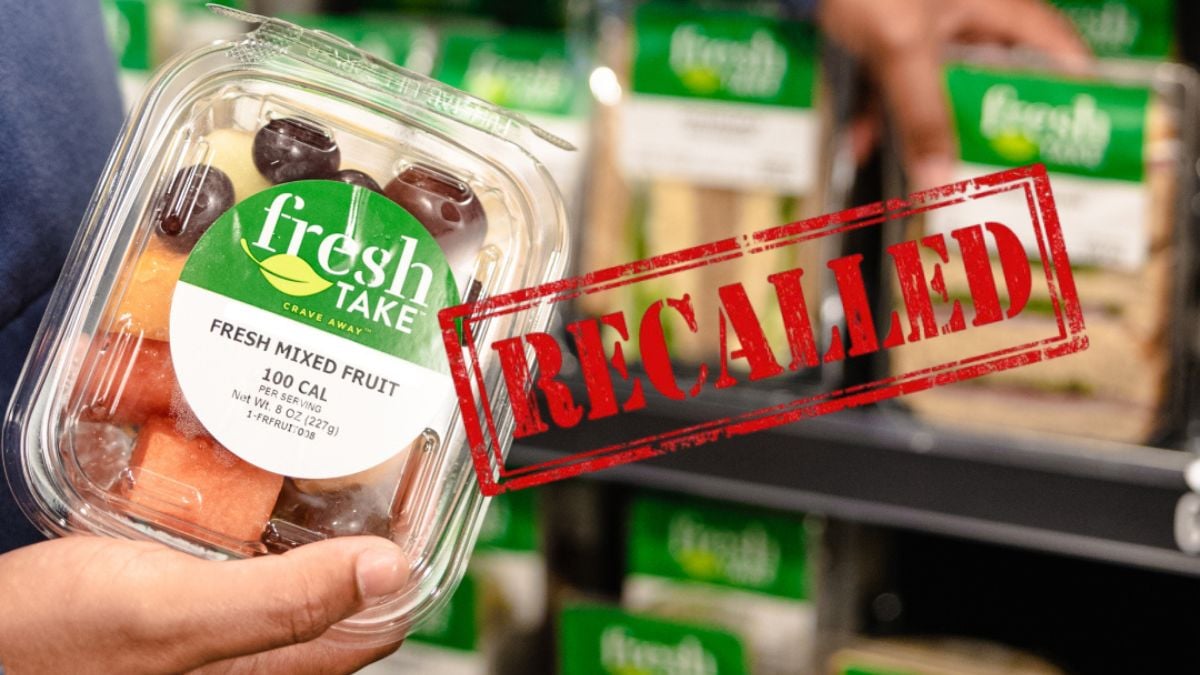
The U.S. Food and Drug Administration (FDA) has announced the recall of dozens of Fresh & Ready Foods products, which may pose a health risk to consumers. If you recently purchased any items from this brand, here’s why they were recalled and what you should do if you still have them.
Why were Fresh & Ready Foods products recalled?
According to the FDA, the recalled products may be contaminated with Listeria, a bacteria that can cause serious illness and, in severe cases, even death.
Which Fresh & Ready Foods products were recalled?
The recall involves ready-to-eat foods that do not require additional cooking, such as sandwiches and snacks. The affected products have expiration dates between 04/22/2025 and 05/19/2025 and include the following brands:
- Fresh & Ready Foods
- City Point Market Fresh Food to Go
- Fresh Take Crave Away
ALSO READ Apple’s new iOS 18.5 update is now available! What’s included and how to install it?
Where were the recalled Fresh & Ready Foods products sold?
The recalled items were distributed between April 18 and April 28, 2025, and sold at retail stores and food service establishments such as hospitals, hotels, convenience stores, airports, and airlines in the following states:
- Arizona
- California
- Nevada
- Washington
What should I do if I purchased the recalled Fresh & Ready Foods products?
The FDA advises consumers, distributors, and food service providers who purchased or received ready-to-eat foods made by Fresh & Ready Foods not to eat, sell, or serve these products. Additionally, anyone who handled these potentially contaminated items should thoroughly clean and disinfect any surfaces or containers they came into contact with, as Listeria can survive refrigeration and easily spread to other foods and surfaces.
What is listeria?
Listeria monocytogenes is a bacterium responsible for an infection that can be very serious or even fatal. This condition particularly affects young children, the elderly, pregnant women, and those with weakened immune systems.
Symptoms of listeria
Listeria infection may include the following symptoms, typically appearing within a month:
- Fever
- Muscle aches
- Fatigue
- Headache
- Stiff neck
- Loss of balance
- Seizures
- Confusion
In pregnant women, it can lead to miscarriages or stillbirth.
How dangerous is listeria?
Listeria infection can affect various organs, including the brain, spinal cord membranes, and the circulatory system.
How is listeria transmitted?
The bacterium are widespread in the environment, present in both water and soil. Infected animals can also act as carriers and sources of transmission.
Listeria can be transmitted in the following ways:
- Consumption of unpasteurized milk or contaminated vegetables.
- Transmission from mother to fetus in the womb or directly to the fetus during childbirth.
- Through sexual contact.
- Through inhalation of the organism.
ALSO READ Wendy’s is launching a new Frosty flavor! What is it and when will it go on sale?
What foods cause listeria?
- Dairy products made with unpasteurized milk
- Ready-to-eat deli meats and processed meats (sausages, hams, and pâtés)
- Smoked fish, such as salmon
How to prevent listeria?
Since this microorganism is widespread in the environment, the most effective protection is to follow basic hygiene practices. This includes consuming only pasteurized dairy products, ensuring meats are well cooked, and properly washing hands before preparing food.
It is also recommended that pregnant women and individuals with weakened immune systems avoid consuming these foods, along with soft cheeses and raw deli meats.
What is the FDA?
The U.S. Food and Drug Administration (FDA) is a federal agency whose mission is to protect public health. It does so by overseeing the safety, efficacy, and quality of drugs, biological products, and medical devices for both human and veterinary use. The FDA also ensures the safety of the nation’s food supply, cosmetics, and radiation-emitting products.
In addition, the FDA regulates the manufacturing, marketing, and distribution of tobacco products in order to protect public health and reduce tobacco use, particularly among minors.
As part of its mission, the FDA also promotes public health by fostering innovation and making medical products safer, more effective, and more accessible. It provides clear, science-based information to help the public make informed decisions about the use of food and medical products that contribute to their well-being.
The FDA also plays a key role in defending the country against terrorism by ensuring the safety of the food supply and promoting the development of medical products to respond to both intentional and naturally occurring public health threats.









